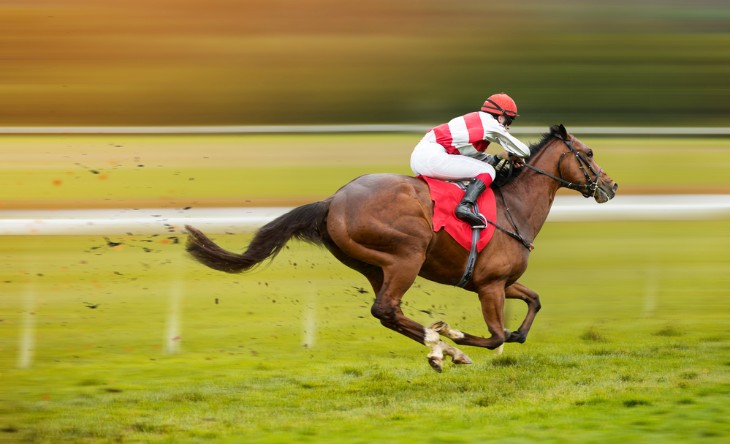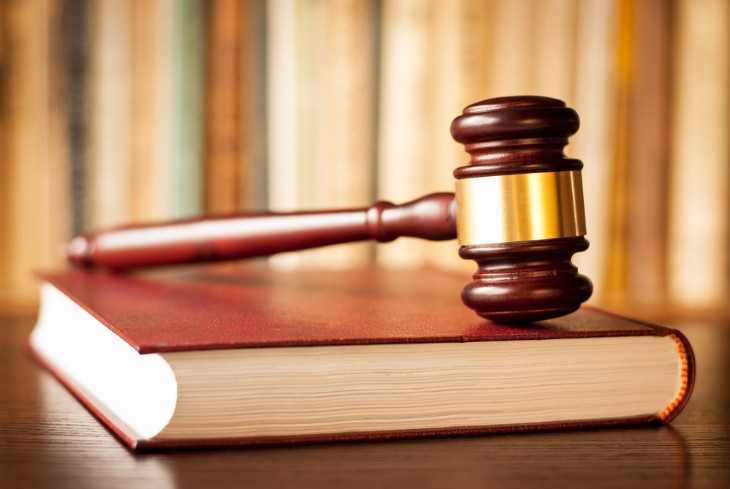Horse racing is one of the most popular sports in the UK and therefore, it doesn’t surprise that it's regulated by the law pretty much completely. Simply, lawmakers have been investing their knowledge for centuries to regulate this unique field, whether it’s about the sport itself, or things that surround it, such as betting, licencing, or even animal welfare. As there is a lot to cover, let’s start with the specifics right away.
Regulation and Governance
The point of regulating a sport like horse racing is pretty simple. We are talking about a popular activity that involves so many people, so it’s important to ensure integrity and fairness, along with safety. Therefore, the officials formed a special body long ago, known as BHA, which stands for the British Horseracing Authority. As you may presume, this body is responsible for pretty much everything, as a central authority that also covers aspects like anti-doping measures or disciplinary procedures.
Of course, one of the key responsibilities is to take care of the licencing and registrations of anyone in the sport. We are talking about jockeys, trainers, owners, stakeholders – all of them need to pass through the process of licensing. Basically, the idea of this body is to maintain public confidence and trust in the sport and, therefore, continue to take care of this important cultural tradition of British society.
We shouldn’t forget equine welfare either. This body works with experts from various fields, all in order to protect the well-being of racehorses. This includes various things, starting from training methods, veterinary care and proper general treatment of these gorgeous creatures.
Betting and Gambling Laws
Of course, it’s hard not to talk about one of the most important aspects of the whole horse racing industry – betting. Here, the so-called Gambling Commission represents the key regulatory body. This commission regulates all forms of betting in the UK, all based on the Gambling Act 2005, which serves as the basis for further regulations. We are talking about things like issuing licences to bookmakers, regulating online platforms and many more.
The whole point of this regulatory body is to protect consumers and there’s only one way to achieve that – to ensure fairness and transparency. Protection also means keeping vulnerable individuals safe, through various self-exclusion programs, advertising restrictions and similar things.
The Act also includes provisions to safeguard vulnerable individuals from problem gambling by setting out requirements for age verification, self-exclusion programs, and advertising restrictions.

Licensing and Registration
When we talk about the basic things of law regulations, things are pretty much the same as in any other sport. It all starts with licensing and registrations. We are talking about quintessential things that ensure competency, integrity and accountability of anyone involved in this beautiful sport.
Of course, there are different types of licences and registrations, with different participants in mind. Of course, jockeys and trainers come to mind first, but we are also talking about stable staff, racecourse officials, owners and others. Let’s take jockeys as probably the most interesting examples. In order to get a licence, they go through various demanding assessments before they are allowed to compete. Trainer licences, on the other hand, are issued based on various things, such as expertise, adherence to equine welfare standards and more.
Then, there are owners and special requirements for them, starting from horse registration. Logically, in order to participate, a horse must be registered, and that’s on the owners, of course. They must provide all kinds of detailed information about the horse, its lineage, ownership history and similar things. If you wonder why all that matters – it’s because that’s the best way to ensure transparency and prevent fraud. It’s a matter of integrity.
Animal Welfare and Equine Health
Participation in competitions and wins are important, but nowhere near as health of horses. That’s why animal welfare and equine health are also completely regulated. Horses’ health is the most basic principle in horse racing, so the British Horseracing Authority pays special attention to it by enforcing regulations that put focus on safety, health and overall horse welfare.
It is a pretty complex aspect of horse racing, so there is a set of rules to regulate pretty much everything, starting with the horse’s early stages. Breeding, training and care are regulated comprehensively and in that way, the horse racing community ensures regular health checks, vaccination protocols and strict medication controls. Moreover, the British Horseracing Authority has also set some pretty high standards when it comes to stable management, training methods and veterinary care, as mentioned.
In other words, it’s not just about what’s happening on the track. The welfare of these noble animals goes way beyond that. There is a set of guidelines that ensures that horses are properly cared for, not just during their racing career, but their whole life, including the period after retirement. Speaking of retirement, the BHA works with all kinds of charities and organisations to ensure these horses get suitable homes, or maybe even new careers.
And despite that horse welfare has been an integral part of horse racing regulations for decades, we didn’t see until recently a comprehensive regulation. In 2018, the Horse Welfare Board was introduced. It was a huge step because horse welfare was addressed comprehensively for the first time. This is a new body that collaborates with the racing industry and all kinds of welfare organisations – all in order to ensure the highest standards of welfare practices, particularly the ethical treatment of racehorses.
Anti-Doping and Medication Control
Sadly, unethical practices have become a part of this sport too and for that reason, anti-doping and medication control are extremely important for the integrity of horse racing, as one of the key defence lines of fair competition. Once again, this is the responsibility of the British Horseracing Authority and we have to say that this body has set some petty strict rules to prevent the use of prohibited substances.
The BHA has designed a whole set of rules that regulate and prevent the use of illegal substances and medications. There is a pretty robust testing program. It includes collecting samples from horses before, during and after races, which are all subjected to thorough analysis to detect the potential use of illegal substances.
The BHA also pays special attention to medical control. Veterinarians, as well as trainers, must respect specific withdrawal periods before competitions. As you may presume, the whole idea is to ensure that horses are cleaned from any medication, because they can also affect a horse’s performance. The boy constantly updates the list of permitted medications and their withdrawal times. With such clear guidance, it contributes to fair competition even more.
For those who don’t follow and violate these rules, there are all kinds of penalties. Fines, suspensions and disqualifications are some of the themes and, of course, they serve as the best method of enforcing these rules. Once again, we are discussing the idea of maintaining the integrity of the sport. By preventing the use of substances that could compromise fair competition, the industry ensures that the outcomes of races are determined by the skill, training, and natural ability of the horses involved.
Maintaining Integrity and Preventing Corruption
With all the things we’ve mentioned in this short article, it’s easy to conclude that the main purpose of law regulations is to keep the integrity of the sport at a respectable level. Then, there is the everlasting fight against corruption. Once again, there is the BHA and its proactive approach to identify and address any potential threats to the sport's reputation and fairness. We are talking about things like monitoring betting activities, ensuring transparent decision-making, and collaborating with law enforcement agencies.
Corruption is closely connected with horse betting, so one of the focus points is the issue of match-fixing or race-fixing. The idea is to prevent individuals from attempting to manipulate the outcome of races for personal gain. For that cause, the BHA has formed a special team that monitors betting patterns to identify any unusual or suspicious activity. Once the anomalies are detected, it’s time to act and soon after, investigations are launched to ascertain whether any breaches of integrity have occurred.
Then, there is the matter of cooperation between BHA and law enforcement agencies. They share information and cooperate on cases that involve criminal activity related to horse racing. And, such an effort ensures that any illegal activities that could compromise the integrity of the sport are addressed promptly and effectively.
Prevention is the key, so BHA and other organisations pay special attention to education and awareness. That’s the best way to fight corruption, so there are all kinds of training for participants like jockeys, trainers, and officials, to ensure they are informed about the rules and regulations related to integrity. Education is also good in the way that it helps participants avoid unintentional breaches. Moreover, it also empowers them to report any suspicious activities they may encounter.

Racecourse Licensing
Safety is critical, just like security and the overall quality of racecourses, so racecourse licensing is another aspect of horseracing regulated by law. Racecourses must obtain licences to host racing meetings, and these licences are issued based on meeting specific standards and requirements set by both the local authorities and the British Horseracing Authority (BHA).
That process is quite complex and includes all kinds of assessments. Things like facilities, infrastructure, and management practices of the racecourse are quintessential. And speaking of safety, racecourses must demonstrate that they have effective plans in place to handle emergencies, manage crowds, and ensure the well-being of both participants and spectators.
Once again, the BHA has the key responsibility, but it also collaborates with local authorities and racecourse owners to ensure that racecourses meet these standards. It has formed the so-called Licensing Department, with the main job of overseeing the application and review process, and evaluating racecourses' compliance with regulatory requirements. Track maintenance, paddock facilities, veterinary services, and anti-doping control areas are just some of the aspects of these strict requirements.
Broadcasting and Intellectual Property
Like in any other sport, there is the matter of broadcasting and intellectual property. These are very important aspects of the UK horse racing industry because they protect the commercial interests of race organisers, broadcasters, and other stakeholders. With that in mind, general intellectual property laws and licencing agreements play a crucial role in governing the use of race footage, data, and related content.
Broadcasting is important in particular, as it is one of the most valuable assets in the horse racing industry. These agreements between media houses and race organisers cover various aspects, such as exclusive broadcasting rights, distribution methods, and revenue-sharing models. Of course, this leads to intellectual property laws, which serve to protect these agreements and ensure that unauthorised parties do not exploit or infringe upon the content.
Another important aspect is the protection of branding and trademarks. Things like logos, names, and other identifying marks associated with racecourses, events, and organisations must be protected from unauthorised use. That’s the only way to maintain the integrity of the brand.
As we live in the digital age, characterised by the rise of online streaming and social media things have become way more complex over the last few decades. It’s critical to navigate these challenges while ensuring that their content is properly protected and their commercial interests are upheld. There are various mechanisms and they all help sustain the economic viability of the horse racing industry and contribute to its growth and development.
Summary
As you can see, regulation and governance play an essential role in the horse racing industry. Overseen by the BHA, they encompass Rules of Racing, licensing, and transparent decision-making to maintain fairness, integrity, and safety. Then, there are the matter of betting and gambling laws and the regulation of betting activities on and off the track, which ensures responsible gambling practices and prevents corruption. Naturally, horse welfare is a priority, and the BHA is setting standards for equine health, training, and post-retirement care. Vigilant anti-doping and medication control measures prevent unfair advantages and penalties for rule violations, while broadcasting rights, data protection, and branding safeguard the commercial interests and intellectual property of stakeholders.
For more information:








